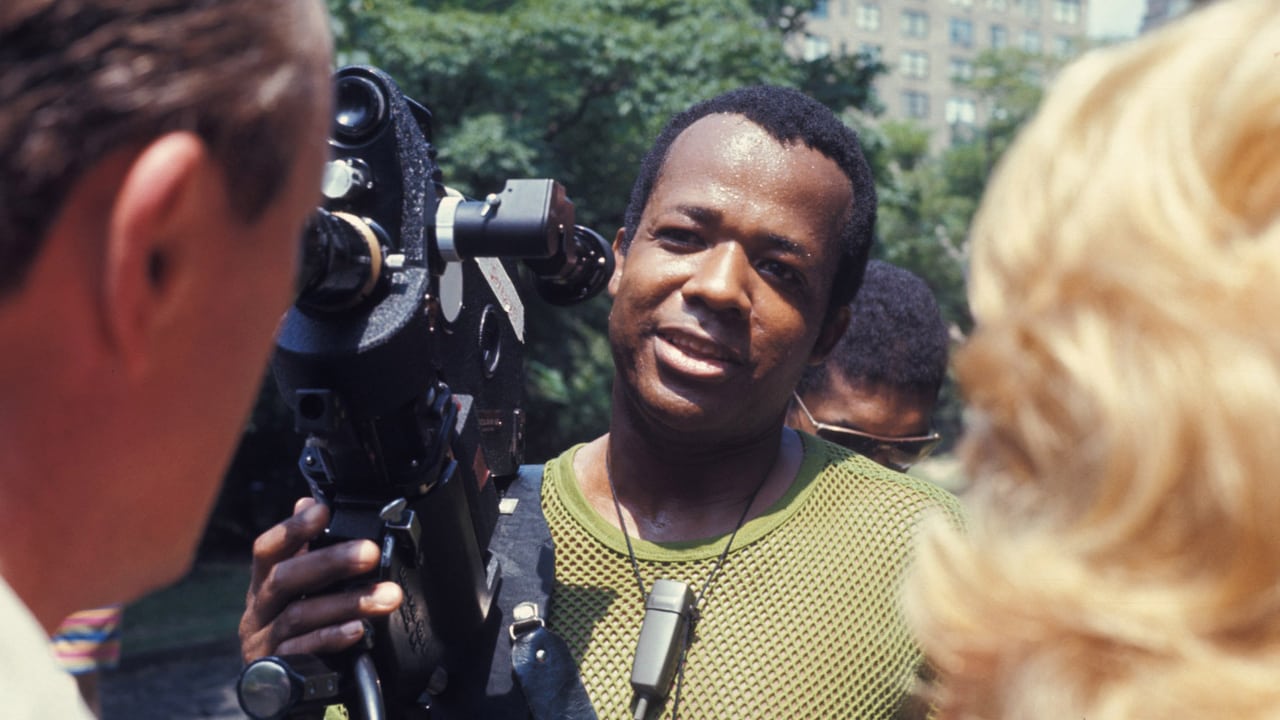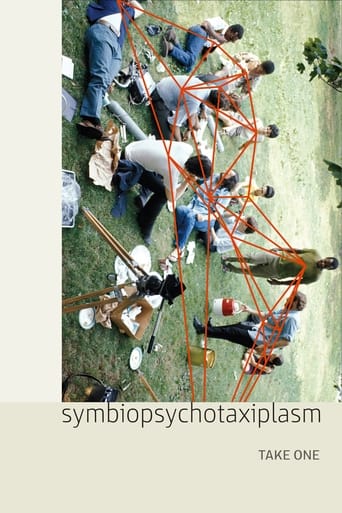



Just perfect...
At first rather annoying in its heavy emphasis on reenactments, this movie ultimately proves fascinating, simply because the complicated, highly dramatic tale it tells still almost defies belief.
View MoreThe acting is good, and the firecracker script has some excellent ideas.
View MoreA film of deceptively outspoken contemporary relevance, this is cinema at its most alert, alarming and alive.
View MoreI gave this film a three only because it kept me interested enough in watching all of it. The film was an interesting experiment but brilliant? That's a stretch, at best, but for its time a big maybe, perhaps. It's a film about nothing but it is a film that is also filled with egomaniacs, misogynists, wannabes and hangers-on. I saw more talent from the candid crowd shots than I did the cast and crew combined of what the third party film crew was filming when the lens was actually focused or the view finder wasn't fixed at a treetop because someone was holding the running camera under their arm. It was a depressing journey on a continuous loop going nowhere, a carousel of blathering idiotic dialog and smug pseudo-intellectualism. It is an interesting time capsule but it's cringe inducing for any woman to watch. The interesting aspect is how many women were involved in the film crew (as well as the actresses) and not one of them flinched at the blatant and nasty undercurrent of misogyny that flowed throughout which was about the only constant this film accidentally chartered a course on and that was the subsequent impact this film left in its cinematic impact and wake.
View MoreSymbiopsychotaxiplasm points the way toward so many later development in film. It manipulates reality by provoking the hapless cast, crew and bystanders to play roles by provoking them. The director of the film uses his own behavior as a Rorschach test. The whole genre of reality television as well as avant-garde documentary styles are anticipated in this film.In addition to its historical importance the film is fascinating on its own terms for anyone who likes to think about the nature of performance vs. reality. Gender, race, sexuality and the march of time also make appearances. Criterion has done its usual terrific job in rescuing this forgotten masterpiece from undeserved obscurity.
View MoreThis is a documentary unlike any other. It has so many layers and shows us so much that trying to analyze it all at once is nearly impossible. Documentarian William Greaves shows us the process of film-making from a different perspective. We see the struggles of the actors, the director, the sound crew, and everybody else trying to hang in there and make this film successful. If this was just about a movie being made it would be ordinary. What Greaves does is make it more complex by having a crew film the actors, and then this will be filmed by another crew, only to have another crew film the whole thing. Three cameras, each with a different goal. It has an almost dizzying affect on you but at the same time is exciting. I like the parts where the crew organizes together and discusses what is going on. Even they are somewhat in the dark as to what Greaves is trying to do. Half see this as an experiment while the other half sees it as a chaotic and confusing failure. No matter what side you choose, you can't argue that Greaves doesn't get you involved in this process.
View MoreI agree with the previous reviewer: it is extremely difficult to peg this film to a numerical rating. It depends on what you are looking for: if you are looking for a thought-provoking film about the performance of self, look elsewhere. Better yet, read some Erving Goffman. If, however, you want to laugh at people's ridiculous behavior before cameras, and reality television is too subtle for you, this is the perfect film.The film begins with the instantly unlikeable director, William Greaves, holding court in Central Park. He instructs the several cameramen to film each other and himself in an affected-European-accent-of-unknown-provenance (it approximates British most closely, though I am certain Greaves is a domestic product); further, that the theme of the film is "sexxxxxuality," he purrs, when he is distracted by a woman on a horse trotting them-ward. "Oh, get her! The woman with the TITS!" Awkwardly gratuitous and downright silly.This sets the tone for the rest of the film, during which two profoundly untalented actors chew their way through Greaves' painful script about the couple's married life. No cheap shock is spared, as it is revealed that she has had abortion after abortion: "one after another you've killed my babies!"; and he is a closeted homosexual: "I saw you looking at him, that fag-got that everyone knows about!" NOTE: "Take 2 1/2" (2003) includes the dramatic reunion of two other actors, also ostensibly from the desk of Greaves. The wife's character, we are informed, has been to Europe (natch.) where she has had a successful recording career. (This actress clearly went to dialog class with Greaves.) The husband has an "adopted" daughter in the music industry, who is getting mixed up in drugs. It's just like the smarmy, unctuous crew member says in the "candid" (see below): it is truly the story of every-couple USA.The best (or rather the worst) parts are the "candid" marijuana-fueled "behind-the-scenes" conversation among the crew members, who AGONIZE over the director's (quite transparent) intentions; the "meaning" of the film; the "authenticity" of the experience, etc. Many complain about the abysmal writing. Greaves later confronts the mutineers on the set, where his initial defensiveness gives way to self-satisfaction: apparently this was the whole idea! It's SUPPOSED to be bad! The really remarkable thing, as far as I'm concerned, is that the director, actors and crew apparently saw the film and released it anyway. Not only is it awful beyond awful, it makes them all look like pretentious, self-indulgent and woefully inept art-school weasels. Every line made me laugh through gritted teeth.
View More